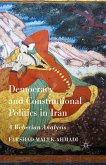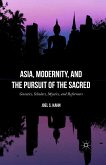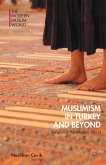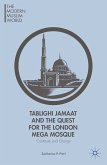Dieser Download kann aus rechtlichen Gründen nur mit Rechnungsadresse in A, B, BG, CY, CZ, D, DK, EW, E, FIN, F, GR, HR, H, IRL, I, LT, L, LR, M, NL, PL, P, R, S, SLO, SK ausgeliefert werden.
"An engaged and interesting account of the ongoing debate - begun in the medieval era - as to whether the Shari'a will survive until the end of time, Ahmad's book tackles also other significant topics, including the unaided ability of the human intellect to arrive at binding norms. As such, the discussion bears important implications for modern Muslim societies, particularly those which are changing." - Georges Tamer, M. S. Sofia Chair in Arabic Studies,
Near Eastern Languages and Cultures, The Ohio State University









